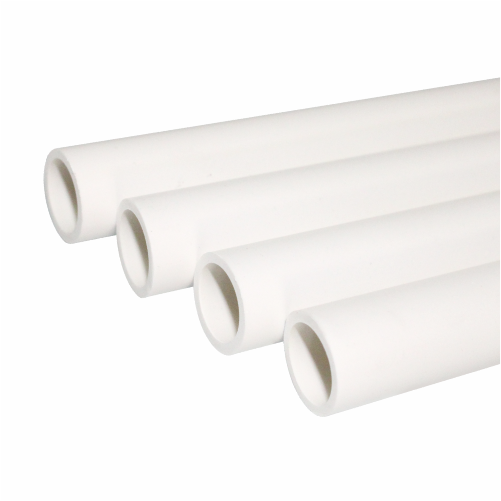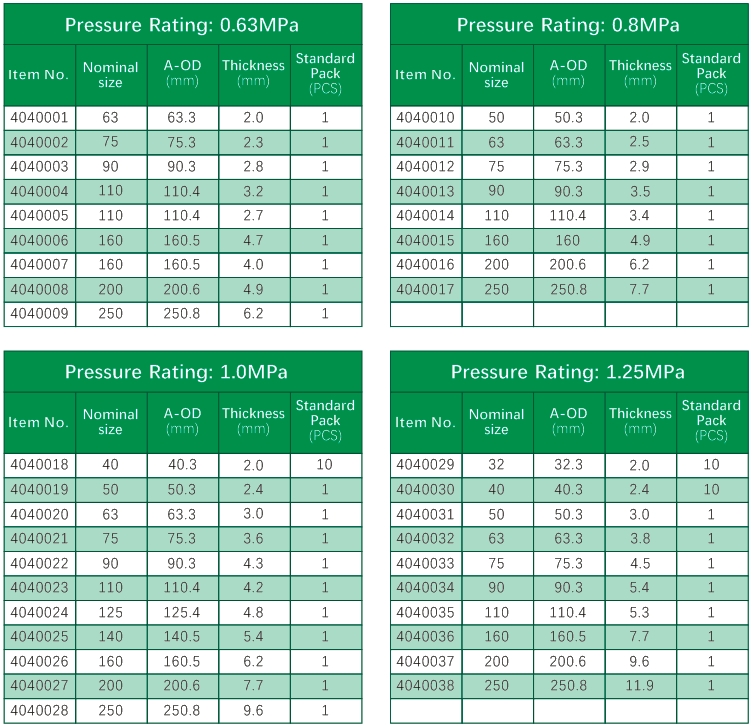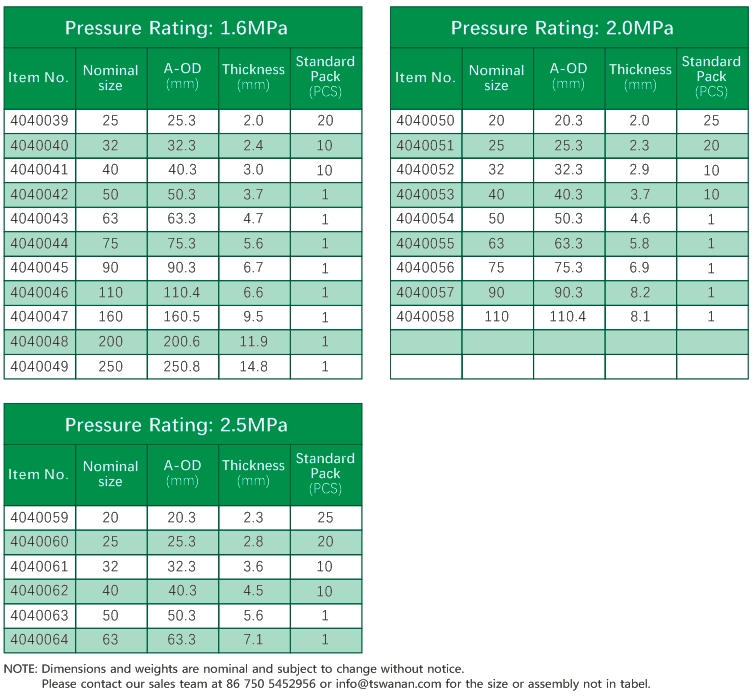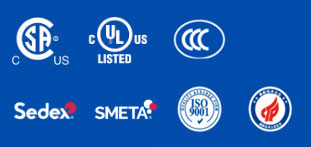Application
PVC Water Supply Pipes find extensive applications in construction, agriculture, chemical industries, and environmental protection. They are primarily used in indoor water supply systems, reclaimed water systems, and farmland irrigation. PVC water pipes are capable of transporting potable water, slurries, and some chemicals, catering to diverse water usage needs across various sectors. Thanks to their superior physical and chemical properties, PVC water supply pipes have become the ideal choice for building water supply and drainage systems.
Features
- Lightweight and Durable: PVC water supply pipes are lightweight, facilitating easy handling, loading, unloading, and installation. They also exhibit high durability, ensuring a long service life.
- Strong Corrosion Resistance: These pipes can withstand erosion from various acids, alkalis, salts, and other corrosive substances, demonstrating excellent chemical resistance.
- Low Fluid Resistance: The smooth interior walls of PVC water pipes minimize fluid resistance, enhancing hydraulic conditions within the piping network and reducing operational costs.
- High Mechanical Strength: Possessing excellent pressure resistance, impact resistance, and tensile strength, PVC water pipes can withstand significant water pressure.
- Easy Installation: Rapid and straightforward connections, coupled with low installation costs, expedite project timelines.
- Cost-Effective: PVC water supply pipes are affordable, coupled with convenient transportation and long service lives, making them cost-effective solutions.
- Environmentally Safe: Their production process does not emit toxic or harmful substances, and they do not affect water quality, adhering to environmental protection and safety requirements.
Compliances
- Material Standards: The PVC resin used in PVC water pipes must meet the requirements of standards such as GB/T5761, with a K value exceeding a certain level (e.g., K > 66), to ensure the pipes' physical and chemical properties.
- Hygiene Standards: For PVC water pipes intended for potable water, their hygienic properties must adhere to standards like GB/T 17219-1998, ensuring no contamination of water quality.
- Connection Standards: PVC water pipes come in two types of connections: adhesive and elastomeric seal ring. Both connection types must meet respective standards to guarantee sealing performance and reliability.
- Pressure Standards: PVC water pipes are available in various nominal pressure ratings, including 0.63Mpa, 0.8Mpa, 1.0Mpa, 1.25Mpa, and 1.6Mpa. Minimum pipe diameters for each pressure rating are also specified to ensure safety during use.






